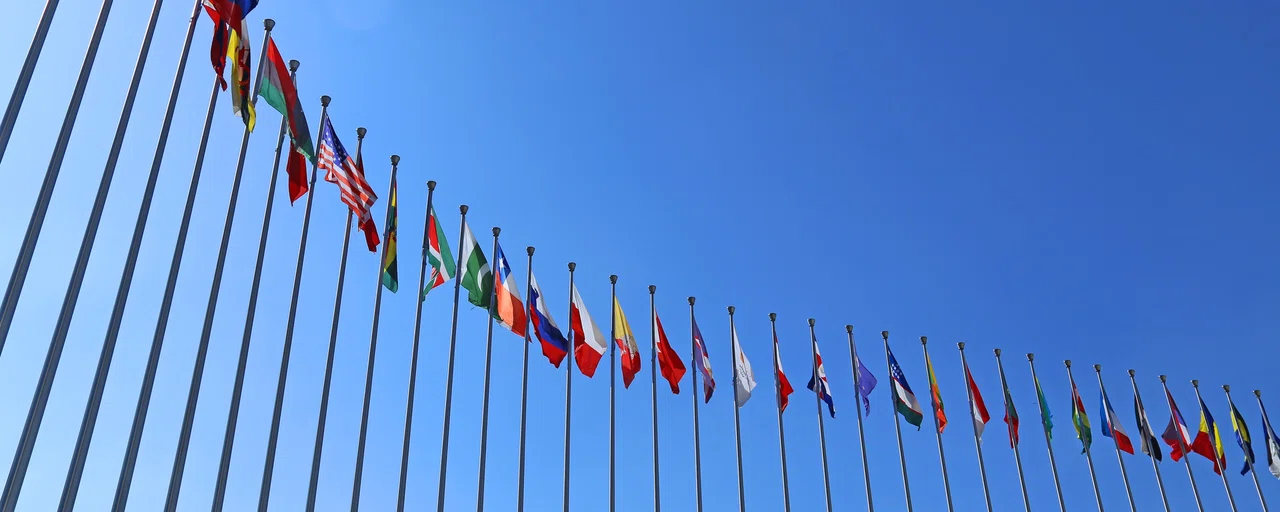



Close
result
LOOKING FURTHER AFIELD
Past, Present and Future
‘Great Power politics’ is mainstream again, after a pause of 30 years.
The echoes of past periods are rhyming today, with economic interests at the heart of ‘system vs system’ competition between China and the West. Such ‘systems’ survive primarily because their elites deliver the promise of well-being ‘for all’ in return for plutocratic reward and controlling nationalistic ambition (being remembered grandly remains as potent a driver as ever). As Kissinger once said, “America has no permanent friends or enemies, only interests”. The same holds for China, and the core interests of China and the US are not only fundamentally misaligned but are destined to remain so.
As we’ve seen increasingly since 2017, this misalignment has real-world consequences. Both nations will continue to lean on all other nations in a proxy economic war. Understanding and mapping potential fissures is now essential for corporates and nations alike. Recent US-led efforts to ‘normalise’ relations are more likely an effort to set near-term boundaries and this effort will not likely alter the strategic direction of travel. Many of the key trends have placed Europe on the back foot – can it step up to the challenge?
Global manufacturing in 20 to 30 years' time will largely be powered by green technologies, as will most consumer goods not coming directly out of the ground. In a world where China’s ‘system’ has captured just under 30% of global manufacturing value add, and is well positioned to increase that in the years ahead, western countries are urgently re-framing their playbook. African and Latin American political leaders have all leant into the narrative of “The West gives us lectures and ‘defence’ against problems (it largely) creates; China gives us hospitals, airports and 5G”. To complicate matters, geo-economic disruptors like the Kingdom of Saudi Arabia and UAE are successfully employing agendas that are leveraging competition between China and The West, as well as expanding their own spheres of influence. We can expect more nations, including Brazil, Pakistan and Asia-Pacific island nations to emulate this strategy. These dynamics are not playing out just in the competition for jobs, but also in supra-national entities like the UN and WTO, as well as rule-setting agencies for key future technologies such as 5G.
Every era of Great Power competition has had its own set of external challenges to master.
Today, the global Green Transition is the number one global economic challenge-cum-opportunity, overlaid with even greater social, political and ecological challenges. China saw early the need to capture value-chain control of key technologies, to bundle with its own vast domestic natural resources in many of the key minerals needed for the transition to an electric world. Coupled with significant early investment in global mineral deposits that it does not have sufficiently domestically (e.g. cobalt and lithium), it has stolen a march on the West, which is now in the uncomfortable position of playing catch-up. America’s CHIPs Act has compounded Europe’s woes in this regard. Unlike China and the US, Brussels has to manage the inefficiencies of herding four-dozen cats on any issue, and this political reality is delaying timely, systematic responses. The growing chorus for an EU response to Chinese and US state capitalism, as well as the fight for economic supremacy in Latin America, Africa and around the world (e.g. a European Belt-and-Road initiative), makes clear that this era of global hyper-competition will make the early 1900’s look like a tea party.
For leaders of all kinds, this period of multi-dimensional dislocation is one that will shine unavoidable light on those that plan and seize opportunity, mitigate risks, and ensure resilience - and those that are swept away ‘by events’. Covid gave us a good taster in this regard – a true test of institutions and citizens alike. Those that shone were relatively few in number, but were pivotal to setting and managing an escape velocity from a global crisis that was fortunately relatively short-lived - certainly in comparison to the many decades and perhaps centuries ahead regarding adverse impacts from global warming.
When we consider ‘winners’ and ‘losers’ in the context of a world that is becoming less habitable (for all life) due to climate change, the idea can easily be diminished, but such is the competitive nature of our species, a resource-short planet will be fought over no matter what. Nations like Saudi Arabia are moving quickly to harness potential strengths (solar, wind, and electric value chains like EV’s) to offset coming weakness (reliance on oil). Australia can be a substantial winner if it can successfully harness process know-how to add to its abundant natural resources. The UK can become an electricity superpower if it can harness its vast wind power potential.
At no time in recent history has government and governance been presented with such tectonic opportunities. China’s super-charged ascendence up value-chains, and dominance of low-cost Green tech, can seem insurmountable. America has made a decent start, but risks leaving Emerging Economies to China. Japan and South Korea are moving swiftly in these geographies, but lack the software and AI skills to match Chinese and US giants. Europe has little time to sharpen its steel, and fight on equal terms.














